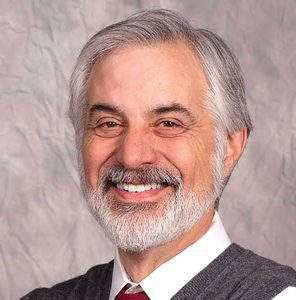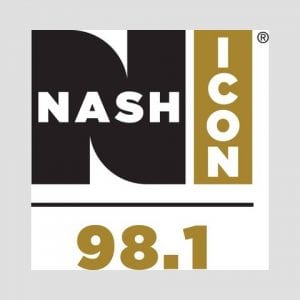Playing in Harmony
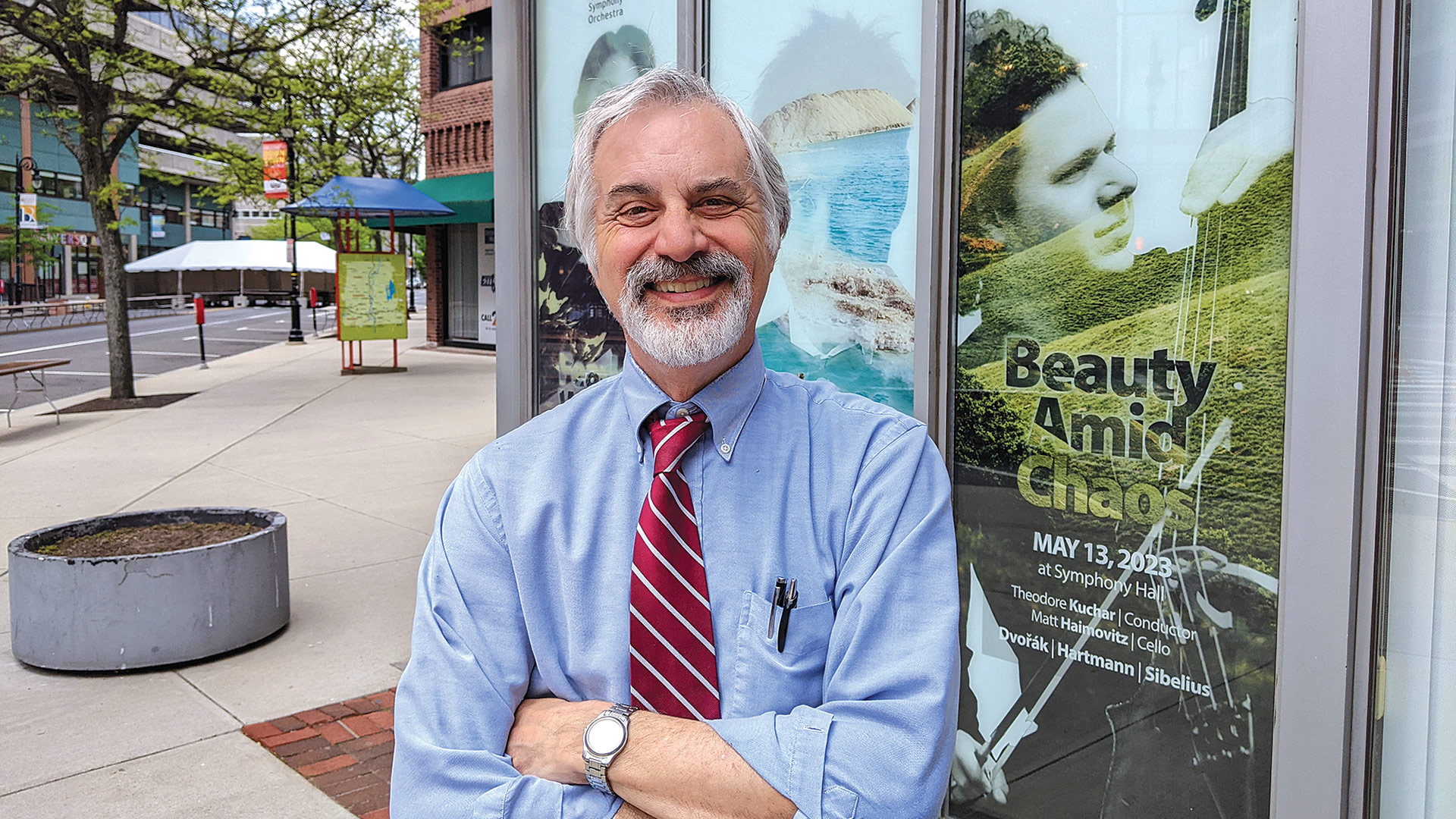
Springfield Symphony Orchestra President and CEO Paul Lambert
Paul Lambert left a long career with the Basketball Hall of Fame in early 2022 to become interim director of the Springfield Symphony Orchestra.
He said his family has often asked him why. Incredulously. Like … really, Paul, why?
To answer that question, he first notes that he loves music, but that’s only part of why he took over an institution that was still emerging from the pandemic and a long stretch without concerts at Symphony Hall — and embroiled in labor strife with Local 171 of the American Federation of Musicians, which, absent a new contract, had filed an unfair labor practice complaint with the National Labor Relations Board.
But Lambert, who shed the interim tag and was named president and CEO of the SSO earlier this year, saw the value in righting the ship, working toward labor peace, and re-establishing — or at least re-emphasizing — the organization’s importance to not only downtown Springfield, but Western Mass. in general.
With the announcement on May 4 of a new, two-year labor deal between the SSO and the union — which calls for a minimum of eight concerts per year at Symphony Hall, annual raises for the musicians, and possibly other community and educational concerts around the region as well — Lambert, the SSO board, and the musicians are all breathing easier as they plan the 2023-24 season.
“Everyone had been reading the negative stories in the press about the labor issues. People were aware of the global pandemic issues. People were aware of all the challenges facing the SSO. And we had to rebuild people’s confidence.”
“I was very aware of the talent on stage and a great appreciator, if that’s the correct word, of the Springfield Symphony Orchestra,” Lambert said of his career change last year. “But I also was aware of the fact that it was a very challenging time.”
In fact, even long-time supporters in the community, including corporate sponsors, were growing anxious, Lambert admitted.
“Everyone had been reading the negative stories in the press about the labor issues. People were aware of the global pandemic issues. People were aware of all the challenges facing the SSO. And we had to rebuild people’s confidence that not only would we perform, but perform on a first-class basis, and then come back with a full season, with real concerts and real energy with our musicians working with us.”
Beth Welty, the union’s president, called the past few years a “demoralizing” time in many ways, but said everyone is feeling grateful now.
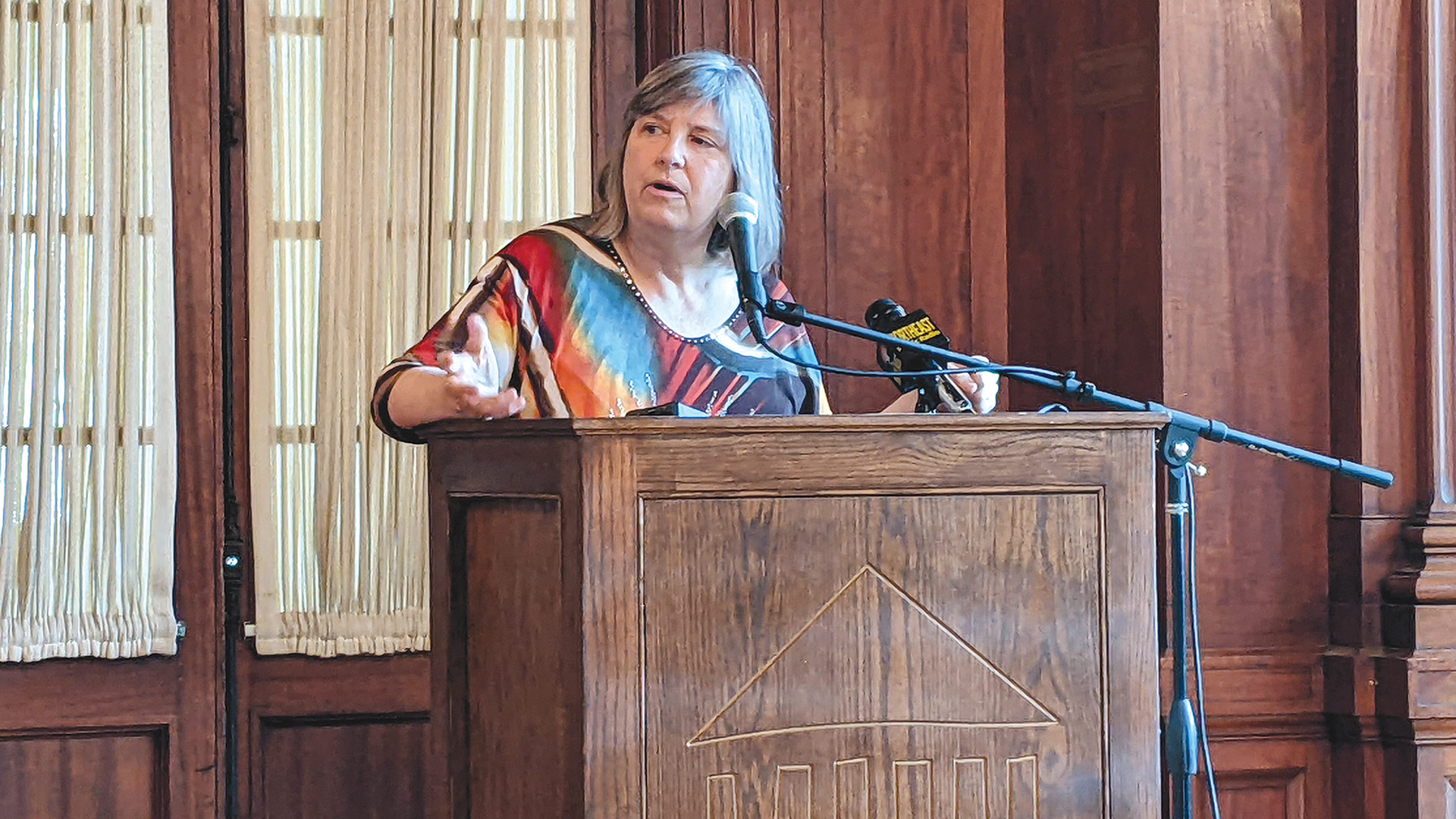
Union President Beth Welty said the musicians are relieved to have a new contract but hope to increase the number of performances in coming seasons.
“There are a ton of people throughout the organization that want to work together,” she told BusinessWest. “The musicians want to work with Paul and the staff and the board, and we are working together. We’ve got to come together and put the past behind us and work for a much better future.”
Lambert agreed. “This has been a very challenging time for the SSO on a variety of fronts. Certainly, the labor issues that have been in place for some years, on top of the global pandemic, which shut everything down and badly affected all performing-arts organizations for some time, were very real. And to get ourselves into a new beginning, a fresh start for all concerned around this labor deal, was critically important.”
Developments of Note
That said, as in many negotiations, no one got exactly what they wanted. For one thing, Welty said the musicians have been clamoring for more performances.
“When I joined the orchestra 40 years ago, we probably did three times the number of concerts we do now. For years, they’ve been constantly cutting and cutting; it felt like no number was small enough for them. They wanted to keep cutting, and we felt like we had to take a stand on that.”
She said the musicians were looking for more than 10 shows, the SSO wanted to go as low as five at one point, and they settled on eight — six classical and two pops.
“We’re not happy about that, but we’re looking to build back up from eight, and now there are some new board members interested in growth,” Welty noted. “You can cut yourself out of existence; the less we play, the less people know we exist.”
“The idea now is to put ourselves in a safer place to see what we can do together, to see what revenue streams we can create, where we can create new opportunities to play.”
Welty did have appreciative thoughts for Lambert, saying it’s clear he understands where the musicians are coming from. And Lambert told BusinessWest that eight concerts is not a hard ceiling, but only the minimum.
“That was a critical point in the negotiations: let’s see what we can do,” he said. “Let’s see what the market will bear. Let’s see what funding is available and what opportunities present themselves. We have to be very creative and open-minded as we work together to see what’s available.”
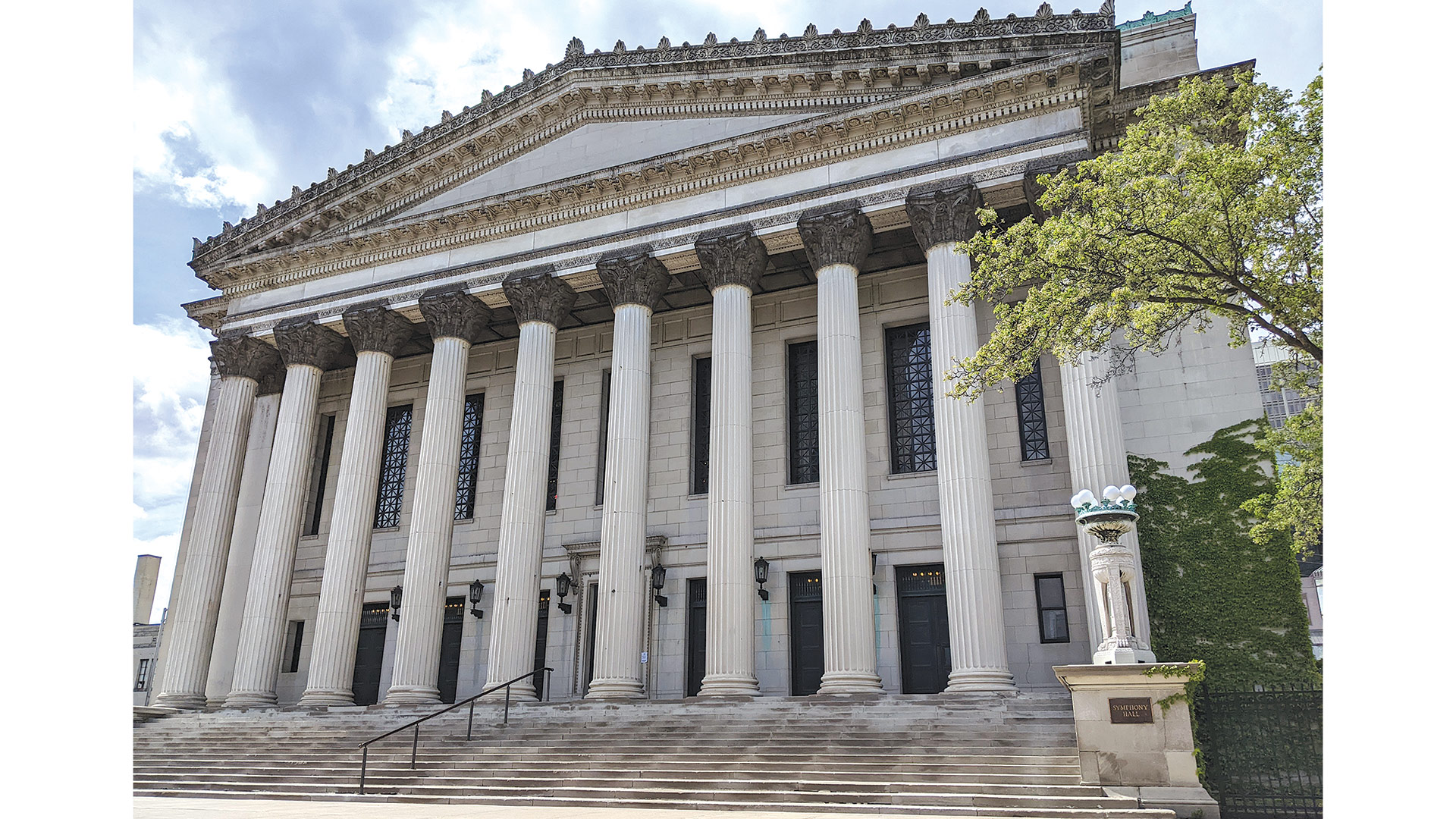
Symphony Hall will host eight SSO performances in 2023-24: six classical and two pops concerts.
Revenue is the big sticking point, he added, noting that, if the SSO sold every ticket for every performance, it would still be running a deficit without increasing external support.
“The challenges that face the Springfield Symphony Orchestra are hardly unique to Springfield. The industry as a whole — traditional, classical symphonic orchestras — is challenged right now,” he explained. “Those audiences, demographically, are aging and fading, and the folks who go to those concerts on a regular basis, and donors and corporations who support those concerts, have been a shrinking pool around the country. There are a lot of orchestras that are really struggling right now to make ends meet.”
He noted that many cities with wealthier populations and deeper corporate pockets than Springfield don’t even have symphonies.
“The idea now is to put ourselves in a safer place to see what we can do together, to see what revenue streams we can create, where we can create new opportunities to play. The whole idea, of course, is to play, to create opportunities for people to hear the Springfield Symphony Orchestra in a variety of formats.”
To that end, the Musicians of the Springfield Symphony Orchestra (MOSSO), the organization formed by SSO musicians during the labor unrest to perform smaller concerts across the region, will transition into a newly named entity, the Springfield Chamber Players, and will continue to present chamber-music concerts, including the long-standing Longmeadow Chamber Series.
Performances like these, Lambert said, will help build a larger audience pool. “They allow new people to come in, who, perhaps, have not listened to the music on a regular basis, and will be exposed to the symphony orchestra and say, ‘wow, this is beautiful. I didn’t know they played this.’”
He and Welty noted that the new season of full-orchestra performance at Symphony Hall, and seasons to follow, will feature a healthy mix of what might be called ‘the classics’ and newer works by more recent composers.
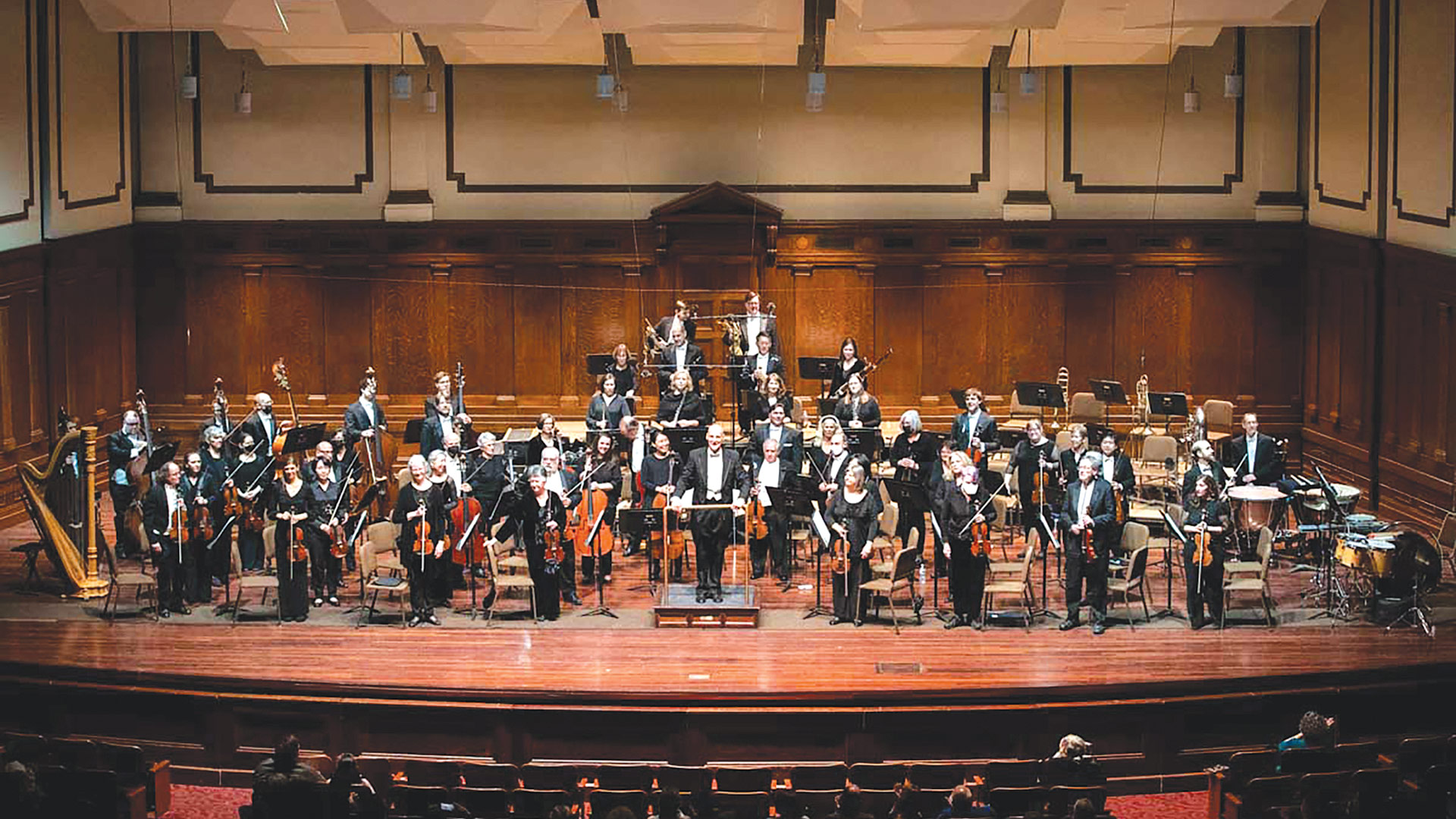
The Springfield Symphony Orchestra, boasting 67 musicians, is the largest symphony in Massachusetts outside of Boston.
Photo by Chris Marion Photography
“People love the classics, but you have to bring in living composers and composers of color and women composers, and represent everyone at concerts,” Welty said. “We really started to do that this season. It was more diverse and inclusive. In terms of the repertoire we’re doing next year, it’ll be the same type of year; we’re really excited about that programming, which is going to be more diverse and interesting. We’re still going to do a good dose of the classics — we’re not abandoning them — but we are combining them with stuff that was written in our lifetime.”
Lambert was also excited about this broadening of choices. “We want to certainly maintain and nurture our core audience, the folks who have grown up with us for many years, the subscribers and the bedrock of our audience who love the classic repertoire of classical music. But at the same time, there’s all kinds of music.”
He feels like that’s an important element in bringing in younger, more diverse SSO fans, who will continue to support the organization in the coming decades.
“We happen to live in a very diverse community and region,” he said. “So I think it’s really important that we find ways to reach all those audiences, let them know that the Springfield Symphony Orchestra is for everybody, that it’s music for everyone. We really are excited about those opportunities for people to come in and hear this beautiful music and these wonderful musicians.”
Sharp Ideas
The other key element in expanding the audience, of course, is connecting with young people. To that end, Springfield Mayor Domenic Sarno announced that the city of Springfield will provide $280,000 over two years in financial support for SSO to create educational programming for youth.
“As the Springfield Symphony and its talented musicians turn a fresh page of music in our beloved Symphony Hall, I cannot stress enough how important Springfield’s talented youth are to the success of this new beginning,” the mayor said in announcing the grant. “Creating a younger, more diverse, and more inclusive classical-music ecosystem should be a top priority of the symphony organizationally. The success of these efforts will ultimately be reflected in the diversity of the music that is played, those represented on stage, and those in the audience.”
Lambert said outreach to youth had been a big success, but stopped happening over the past few years. “As I talked to folks out in the business community, so many people said to me, ‘the first time I ever heard a symphony orchestra, I was in fourth grade … I remember going to that concert, and it changed how I looked at the symphony.’ So I said to the board on more than a few occasions, ‘that’s just not discretionary, that’s mandatory; we have to start redoing that.’ It opens the door for so many people, for the first time in their life, to hear a symphony orchestra live on stage.”
“As I talked to folks out in the business community, so many people said to me, ‘the first time I ever heard a symphony orchestra, I was in fourth grade … I remember going to that concert, and it changed how I looked at the symphony.”
Welty wants to go beyond those experiences, hoping to not only bring kids to Symphony Hall, but for small groups of musicians to visit area schools.
“We used to go play for kids in the classrooms. We probably stopped doing that in the early 2000s, but we did hundreds of those concerts,” she recalled. “I loved it. We interacted directly with the kids; there were Q&A sessions. I want to get back to that as an educational resource.”
She also fondly recalls the days when the symphony toured New England. “I understand that a lot of financial repair has to happen, and we can’t afford to take the whole orchestra, but we can take a quartet out. We can take a quintet out.”
Such traveling shows, like the two series of performances MOSSO staged at the Westfield Atheneum over the past two years, are another way to grow the SSO’s fanbase, she added. “It’s not just great for the audience, but a great marketing tool for the SSO. We hope to keep expanding that.”
As for corporate sponsorship, Lambert said it was a tough year, scheduling live performances on the fly under the old contract’s terms while building up the staff, negotiating with the union, and keeping supporters on board.
“There was a lot of work being done trying to convince people to trust us and come on board. Some folks started to do that when MassMutual came back and was willing to support us; that was critically important. There are other folks we need to embrace that. We’ve had some really wonderful response from a core group of sponsors — I hope there’s a lot more.”
As for growing new audiences, Lambert is confident that those who attend a concert — whether a full symphony performance in Springfield or a chamber concert in Longmeadow, Westfield, or elsewhere — will be “blown away,” and not only want to attend more shows, but perhaps support the SSO as a sponsor or donor. “We need everybody to work together.”
In Tune with the Community
After a couple years of performing concerts under the old contract’s terms, Welty is relieved the musicians can focus on the positive impact of what they do.
“For this community to thrive, it really needs a vibrant art scene. It’s a real economic driver,” she said, noting the impact of downtown events on restaurants and other attractions — not to mention on the ability to grow a business.
“If you’re a CEO or business person looking to be based in the Springfield area, and you want to attract the best talent to come work for you, Springfield has to be an appealing place to live — and the arts are so important to that,” Welty added. “Local sports teams are important, but the arts are just as important. If you think you’re living in a cultural desert, you won’t get the best people to come work for you.”
The Springfield Symphony Orchestra, boasting 67 musicians, is the largest symphony in Massachusetts outside of Boston — which is impressive in itself, Lambert said.
“The fact that Springfield, Massachusetts has a symphony orchestra in 2023 is kind of a miracle at this point. There are much bigger places that don’t have this great gift,” he told BusinessWest. “I think it’s really important that we all get together and recognize how this adds to the quality of life here in Springfield, how it adds to the reasons that people might want to live and work here and come downtown.”
Which is why Welty is encouraged by what the new labor agreement promises, and what it may lead to in the future.
“On paper, there’s less guaranteed work, but there’s more energy on the board to create new concerts, new programming,” she said. “I think, in the end, we will start building back and offer more to the community.”



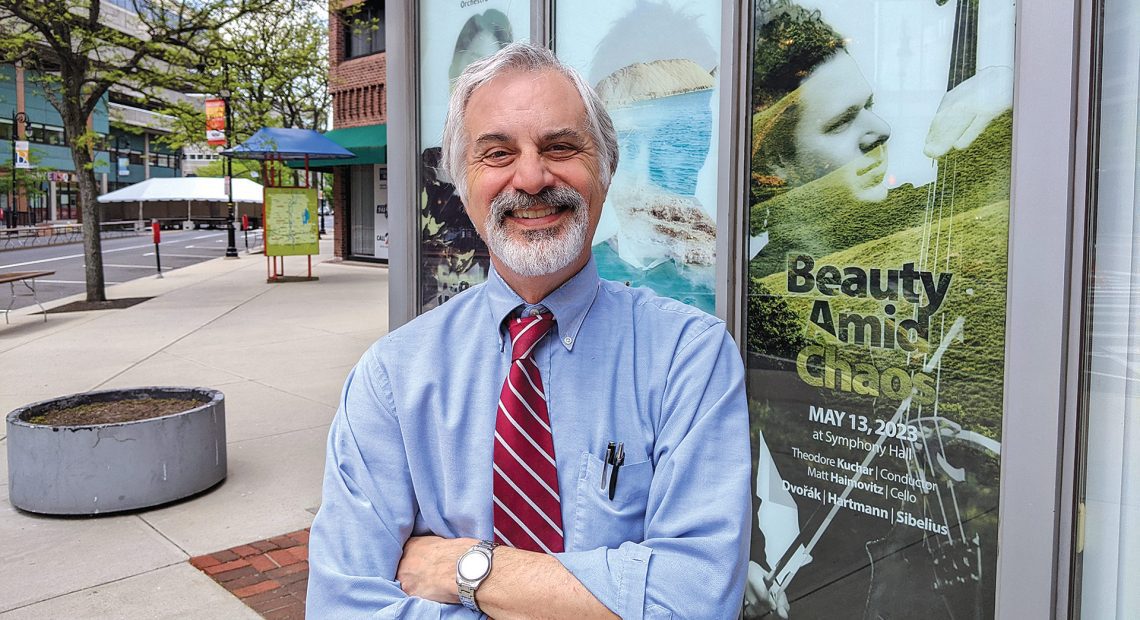
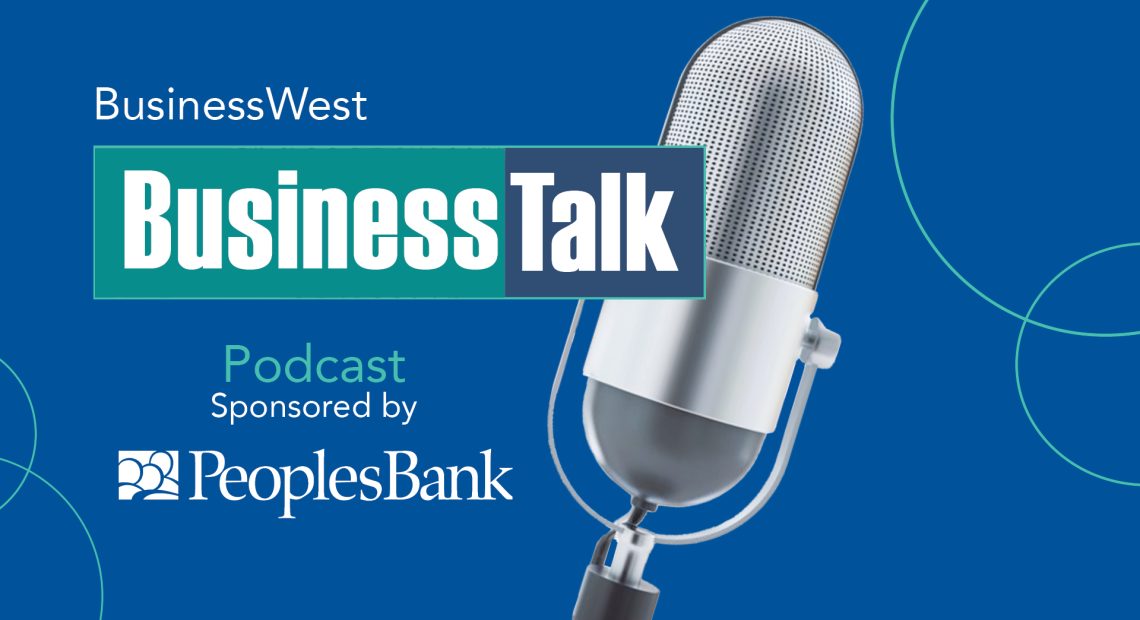
 We are excited to announce that BusinessWest has launched a new podcast series, BusinessTalk. Each episode will feature in-depth interviews and discussions with local industry leaders, providing thoughtful perspectives on the Western Massachuetts economy and the many business ventures that keep it running during these challenging times.
We are excited to announce that BusinessWest has launched a new podcast series, BusinessTalk. Each episode will feature in-depth interviews and discussions with local industry leaders, providing thoughtful perspectives on the Western Massachuetts economy and the many business ventures that keep it running during these challenging times.